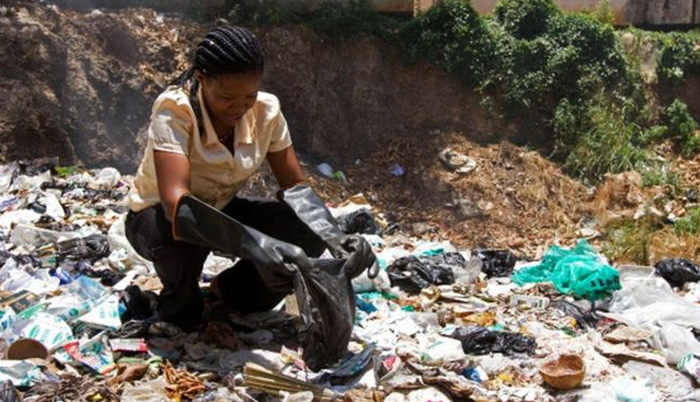![]() Home > Africa
Home > Africa
Kenya Plastic Bag Ban Comes Into Force After Years Of Delays

Waste plastic bags are a major environmental problem in many African countries
![]() August 29th, 2017 | 09:09 AM |
August 29th, 2017 | 09:09 AM | ![]() 1777 views
1777 views
KENYA
A ban on plastic carrier bags has come into force in Kenya, which means that anyone found selling, manufacturing or carrying them could face fines of up to $38,000 or prison sentences of up to four years.
The government says the ban will help protect the environment.
But manufacturers of the bags have argued that 80,000 jobs could be lost.
A court on Friday rejected a challenge to the ban. Kenyans are estimated to use 24 million bags a month.
Several other African countries have outlawed plastic carrier bags, including Rwanda, Mauritania and Eritrea.
Kenya's ban is seen as one of the toughest in the world, although officials say that for now, ordinary shoppers will be warned and have their bags confiscated.
Piles of waste plastic bags are a common site across Kenya, as in many African countries.
Animals often graze on the rubbish and the United Nations' Environment Programme says huge amounts of polythene bags are pulled out of livestock in Nairobi's abattoirs - as many as 20 bags per cow - raising fears of plastic contamination in beef.
Kenya's Environment Minister Judy Wakhungu says the plastic bags take between 20 and 1,000 years to biodegrade.
"Plastic bags now constitute the biggest challenge to solid waste management in Kenya. This has become our environmental nightmare that we must defeat by all means," she told the BBC.
Reports say traders in the city's main meat market are still using plastic bags.
Others say people are using old sacks, newspapers and envelopes.
When these are not available, consumers are said to be carrying their goods with their bare hands.
Travellers coming into Kenya with duty-free plastic shop bags will be required to leave them at the airport under the new rules, Nema has said.
This is the third attempt in the past 10 years to ban plastic bags in Kenya.
The government had given a six-month window for adjustment which expired on Sunday night.
Manufacturers who use polythene to wrap products are exempted from the ban.
In its ruling last week, the High Court dismissed a case filed by two plastic bags importers urging it to drop the ban. The court ruled that environmental concerns were more important than commercial interests.
Research in Europe has shown that a paper bag must be used three times to compensate for the larger amount of carbon used in manufacturing and transporting it.
Likewise a plastic "bag for life" must be used four times, and a cotton bag must be used 131 times.
Source:
courtesy of BBC NEWS
by BBC NEWS
If you have any stories or news that you would like to share with the global online community, please feel free to share it with us by contacting us directly at [email protected]